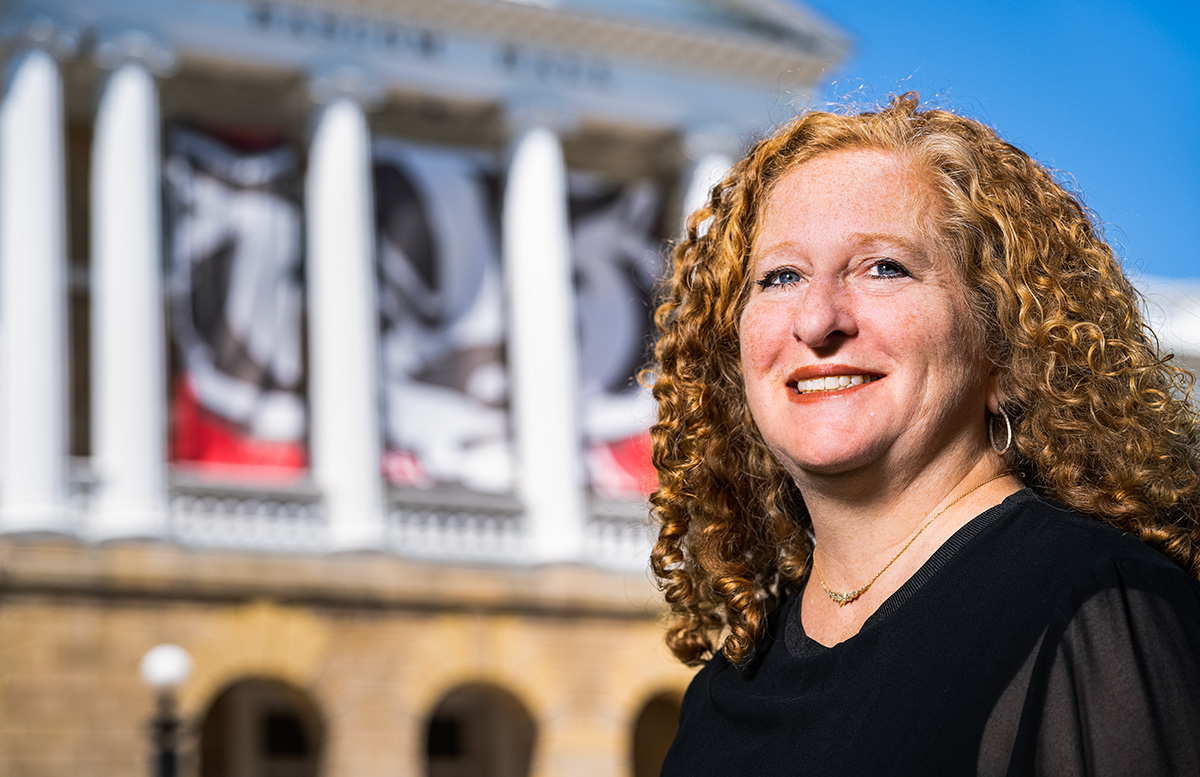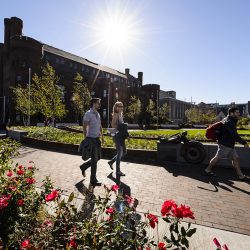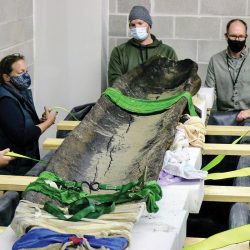The Next Challenge for RISE-EARTH
The new UW initiative will hire faculty to address environmental problems.

“UW–Madison has long been a leader in responding to community-identified environmental challenges,” says Mnookin. Jeff Miller
UW–Madison has announced the next area of focus in its Wisconsin Research, Innovation, and Scholarly Excellence (RISE) Initiative. RISE-EARTH will strengthen the university’s ability to address complex problems related to the environment, translating discoveries into tangible benefits for Wisconsin and the world.
The RISE initiative involves accelerated and strategic faculty hiring; research and infrastructure enhancement; interdisciplinary collaboration; and increased student opportunities. RISE-AI, focusing on artificial intelligence, was the first area announced earlier this year.
RISE-EARTH, which stands for Environment: Adaptation, Resilience, Technology, and Humanity, will center on two themes. The first goal is to reimagine economic and environmental systems — for example, finding innovative ways to revitalize communities with new modes of transportation or renew agricultural lands to reduce erosion and enhance biodiversity. The other goal is to build sustainable energy and technical systems, such as new clean energy technologies and ways to capture and store carbon.
“UW–Madison has long been a leader in responding to community-identified environmental challenges and in developing solutions to problems that can be put immediately into action,” says Chancellor Jennifer L. Mnookin. “By investing in the next generation of faculty leaders through RISE-EARTH, the UW will be well poised to make even greater contributions to sustainability research, education, and problem-solving in the world.”
Hiring for the initiative will begin this fall, with 40 hires planned over the next several years.
For decades, UW–Madison has explored sustainability across a variety of fields, from economics to policy, chemistry to engineering. For example, UW researchers laid the foundation for the study of wildlife ecology and pioneered remote sensing of Earth’s resources.
“RISE-EARTH will help bring new thinkers with bold ideas to campus to fuel greater interdisciplinary collaborations,” says Provost Charles Lee Isbell Jr. “Challenges like those we face to achieve carbon neutrality, future-proof our economy, and prepare tomorrow’s sustainability leaders are best tackled when people across multiple disciplines come together to create solutions.”
Published in the Fall 2024 issue



Comments
No comments posted yet.